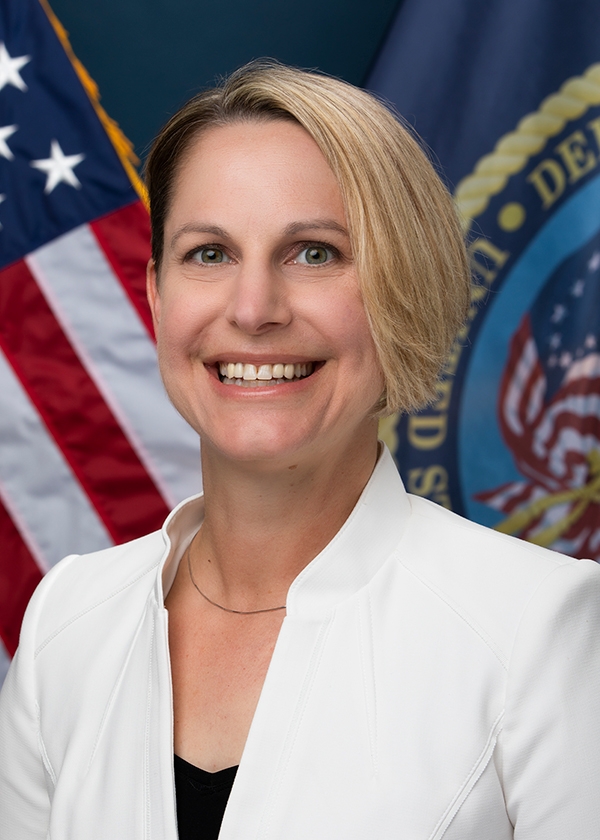
Roberta Diaz Brinton, PhD
|
|
Roberta Diaz Brinton, PhD | Transition States and Reprogramming Neural Systems: Lessons from the MidLife Female Brain Dr. Roberta Diaz Brinton leads the Center for Innovation in Brain Science at the University of Arizona which is devoted to developing therapeutics for age-associated neurodegenerative disease including Alzheimer’s, Parkinson’s, Multiple Sclerosis and ALS. Her neuroscience research spans discovery, translational and clinical science. She has authored over 250 scientific publications, holds multiple patents, and founded 2 biotech start-ups, most recently, NeuTherapeutics. She is an internationally recognized expert on Alzheimer’s whose discoveries have led to innovative therapeutics to prevent, delay, and treat the disease. Brinton has conducted two NIA funded Phase 2a clinical trials and is currently conducting three National Institute on Aging Phase 2b clinical trials including the REGEN-BRAIN© trial of allopregnanolone to regenerate the Alzheimer’s brain and the PhytoSERM clinical trials to determine safety and efficacy to promote brain glucose metabolism, cognition and to alleviate menopausal symptoms. |
Jay Fournier, PhD
|
|
Jay Fournier, PhD | Optimizing Recovery: Comprehensive Care Pathways for Depression at The OSU Depression Recovery Center The primary aim of his work is to understand individual differences in the response to treatments for depression so that more efficient and effective treatments can be developed. Work in his lab integrates tools from research on individual differences, treatment, and affective neuroscience to identify patient characteristics that are prognostic and prescriptive indicators of treatment response; to describe the markers of neural function associated with those indicators; and to develop and refine treatment strategies that better target the specific mechanisms that maintain an individual patient's illness. |
Lisa Harding, MD
|
|
Lisa Harding, MD | Advanced Treatments, Limited Reach: Access in Interventional Psychiatry Lisa Harding, MD, is a board-certified psychiatrist and depression expert specially trained in providing all treatment types for depression. She is a graduate of the Yale School of Medicine where she finished her training as the Chief Resident of Intervention Psychiatric Services at Yale Psychiatric Hospital and is now Assistant Clinical Professor in the Department of Psychiatry at the Yale School of Medicine. She has personally completed over 4000 procedures which include administering ECT, rTMS, Esketamine and Ketamine. Dr Harding is the Medical Director of the Mood Institute, private insurance-based outpatient psychiatric practices, dedicated to treatment-resistant depression (TRD), especially in underserved populations. |
Manish Jha, MD
|
|
Manish Jha, MD | Building the Bridge Between Primary Care and Interventional Psychiatry: How Can Measurement-Based Care Help? He received his medical degree from Maulana Azad Medical College in New Delhi, India and completed his residency training in Psychiatry at UT Southwestern Medical Center, Dallas, TX. In his clinical practice, he provides care to individuals with treatment-refractory mood disorders and substance use disorders. His research is focused on developing novel interventions for psychiatric disorders, personalizing the use of currently available treatments, and bringing these scientific discoveries to clinical practice. He is currently the PI of a NIMH-funded career development award (K23) to elucidate the neurocircuit mechanisms of irritability in adults with MDD that uses ketamine as a pharmacological probe. |
Jordan Karp, MD
|
|
Jordan Karp, MD He is an expert in the fields of geriatric psychiatry, depression treatment, and suicide prevention. Dr. Karp’s priorities for the Department include: providing the best care possible to our patients and their families today; preparing the next generation of psychiatrists to provide better care in the future; produce the advancements in knowledge required to improve our ability to diagnose, treat, and ultimately prevent mental illness; and engage with diverse stakeholders to assure our workforce represents and meets the needs of our community and promotes social justice. |
Eric Lenze, MD
|
|
Eric Lenze, MD | Managing Late Life Depression in the Era of Clinical Complexity Dr. Lenze is renowned for his research in depression, anxiety, and cognitive functioning in older adults. Among his more than 350 publications are studies published in JAMA, the New England Journal of Medicine, and the Lancet. He is a leader in cutting-edge clinical trial designs. In 2020, he led a team that showed the drug fluvoxamine could prevent deterioration in acute COVID illness. His team is now testing treatment for long COVID, to find help for neuropsychiatric symptoms such as “brain fog.” In his new study in long COVID patients, patients participate remotely via their smartphones; this speeds up recruitment and improves the quality of outcome measurement. Dr. Lenze’s research aims at reducing the negative outcomes of mental illness such as premature age-related morbidity. He is testing senolytic drugs to “turn back the clock on aging” in individuals with depression and other illnesses associated with accelerated aging (such as schizophrenia).
|
Samantha Meltzer-Brody, MD, MPH
|
|
Samantha Meltzer-Brody, MD, MPH | Neurosteroids and Postpartum Depression: The Brexanolone and Zuranolone Journey from Bench to Bedside She is a passionate advocate for innovation and transformation of mental health care. Dr. Meltzer-Brody is an internationally recognized physician-scientist in perinatal depression. Her research investigates the epidemiologic and biological predictors of perinatal depression and innovative treatment approaches (pharmacologic and psychotherapeutic), which have taken her across the globe including to sub-Saharan Africa. She had led the MOMS GENES study—the largest global genetic study of postpartum depression (PPD) using app-based tools. She served as the academic PI for novel psychopharmacologic clinical trials to develop the first FDA approved medication for postpartum depression (brexanolone), and served as an investigator for the newly approved oral drug (zuranolone) for PPD. |
David C. Mohr, PhD
|
|
David C. Mohr, PhD | Digital Mental Health for Depression Dr. Mohr’s research lies at the intersection of behavioral science, technology, and clinical research, focusing on the design, evaluation, and implementation of digital mental health technologies and services. He has developed and evaluated numerous web-based, mobile, and text messaging interventions for depression and anxiety. Dr. Mohr has also conducted research in personal sensing, using smartphone sensor data to detect behaviors related to common mental health problems such as depression and anxiety. The goal of this work is to develop more efficient tools that can respond to sensed states to provide just-in-time interventions. Dr. Mohr is President of the Society for Digital Mental Health and a Fellow of the American Psychological Association and the Society for Behavioral Medicine. His research has been consistently funded for more than 30 years by the NIH, other federal agencies, and numerous foundations, resulting in over 350 peer-reviewed publications, and more than 25 book chapters. |
Patricio Riva Posse, MD
|
|
Patricio Riva Posse, MD | The Case for Surgical Neuromodulation Options in Treatment-Resistant Depression Patricio Riva Posse, MD is a dual-trained neurologist and psychiatrist. His clinical activities involve treatments with ketamine/esketamine and non-invasive neuromodulation, such as ECT and rTMS. He provides consultation services in the TRD clinic. His research activities also incorporate invasive neuromodulation for psychiatric disorders, including Vagus Nerve Stimulation and Deep Brain Stimulation. He has led the clinical management of patients in DBS for depression protocols for the last 12 years. Partnering with neuroimaging researchers, biomedical engineers, and electrophysiologists, his ongoing research is focused on the identification of biomarkers of response to DBS. He is in the steering committee of the upcoming multicenter randomized clinical trial evaluating the efficacy of subcallosal cingulate DBS for depression. He teaches a monthly course for physicians interested in practicing ECT and ketamine/esketamine, and has been the co-director of the Interventional Psychiatry Fellowship since 2023. |
Sanjay J. Mathew, MD
|
|
Sanjay J. Mathew, MD | EEG Gamma Oscillations as a Prognostic Marker for IV Ketamine in Treatment-Resistant Depression Dr. Sanjay also serves as a staff physician at the Michael E. Debakey VA Medical Center in Houston and a Senior Scientist at The Menninger Clinic. He graduated from Dartmouth College and Baylor College of Medicine, and trained as a resident in psychiatry at Columbia University/New York-Presbyterian Hospital. He completed a postdoctoral research fellowship in mood and anxiety disorders at Columbia University and the New York State Psychiatric Institute. Prior to his current position, he served as faculty at the Icahn School of Medicine at Mount Sinai, where he co-directed the Mood & Anxiety Disorders Program. His research program, funded by NIH, VA, PCORI, and industry, focuses on experimental therapeutics and pathophysiology related to treatment-resistant mood/anxiety disorders and PTSD, with a particular focus on developing rapid-acting and novel pharmacotherapies. His program employs multiple neuroimaging techniques to uncover potential biomarkers associated with clinical outcomes. |
Ilse Wiechers, MD, MPP, MHS
|
|
Ilse Wiechers, MD, MPP, MHS | Algorithms for TRD Treatment Success: Lessons from the Veterans Health Administration Dr. Wiechers is a practicing, board-certified adult and geriatric psychiatrist and a senior healthcare executive with the Department of Veterans Affairs. She serves as the Deputy Executive Director in VHA Office of Mental Health (OMH). In this role, she leads the operations of OMH and the timely development and implementation of policies and programs that ensure Veteran-centered, evidence-based, high-quality mental health services to over 1.9 million Veterans every year. She also leads OMH’s legislative policy and partnership work, engaging regularly with key Congressional stakeholders and Veteran Service Organizations. She has been instrumental in the development of VHA’s portfolio of innovative mental health treatments including ketamine, esketamine, and psychedelic-assisted therapy |
Nolan Williams, MD
|
|
Nolan Williams, MD | Interventional Neuropsychiatry The long-term goals of his research program are to develop innovative technologies and therapeutics capable of modulating the neural circuitry disrupted in mood disorders, OCD, and other neuropsychiatric conditions. His team has been developing neuroimaging-based approaches to precisely target therapeutic delivery and predict treatment responses to therapeutic neuromodulation and psychedelics. Dr. Williams earned his M.D. and completed his dual residencies in neurology and psychiatry at the Medical University of South Carolina (MUSC). Triple board-certified in general neurology, general psychiatry, as well as behavioral neurology and neuropsychiatry, Dr. Williams brings a comprehensive background in clinical neuroscience to his role as a clinically active neuropsychiatrist. His expertise extends to the development and implementation of novel therapeutics, including devices and novel compounds, for central nervous system illnesses. |













